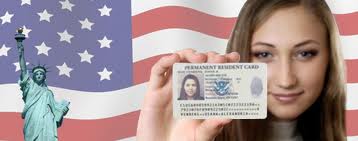
Although a wide variety of occuptions, from million-dollar investors to religious workers, are exempt from labor certification, only those categories most frequently used are listed below.
Client Reviews

Go to a Law Firm which is Professional and Knowledgeable
“Very professional law firm. We had a difficult issue and Mr. Shusterman’s office got right onto the case and resolved the issue with USCIS. Because of their efforts, me and my family were able to get our Legal Permanent Residency card. My suggestion to those trying to obtain employment based card. Don’t look for money saving attorney. They will cost you lot more in long run. Go to a law firm which is professional and knowledgeable. It pays in the long term.”
- Nilesh Patel, Chicago, Illinois
Read More Reviews
Zoom Consultations Available!
Shortage Occupations – Alternatives to PERM #1
Labor Department regulations designate certain occupations which are determined to be chronically short of workers and exempts employers of such workers from the labor certification process. Presently, the regulations list only two occupations: registered nurses and physical therapists.
Priority Workers – Alternatives to PERM #2
The Immigration Act of 1990 rewrote much of the employment-based immigration provisions contained in prior law. It created a new classification scheme for employment-based immigrants and exempted many of them from the labor certification process. The largest category of persons exempted from labor certification are called priority workers.
Priority workers consist of the following three subcategories: (1) persons of extraordinary ability, (2) outstanding professors and researchers, and (3) certain multinational executives and managers.
By definition, a person of extraordinary ability is one who belongs to that “small percentage” that have “risen to the very top of the field of endeavor.” Should you qualify for this category, the law does not require that you be sponsored by a particular employer. However, the documentation requirements for inclusion in this category are demanding. Your extraordinary ability must be in one of the following fields: the arts, sciences, athletics, business or education.
The second subcategory, outstanding professors and researchers, requires that you be internationally recognized as outstanding in your specific academic area and that you meet certain other requirements (such as three years teaching or researching experience in the field and a tenure or tenure-track position).
The third subcategory, for multinational executives and managers, is little used by foreign students since it requires you to be employed abroad as an executive or manager for at least one of the past three years.
National Interest Waivers – Alternatives to PERM #3
Another exception to PERM requires that you possess either an advanced degree or are of exceptional ability in the arts, sciences or business, and that your immigration to the U.S. would be in the national interest.
The USCIS has set forth the following seven factors which may be considered in defining national interest: Would your employment (1) improve the U.S. economy, (2) improve the wages and working conditions of U.S. workers, (3) improve education and training programs for U.S. children and under-qualified workers, (4) improve health care, (5) provide more affordable housing for young and/or older poorer U.S. residents, (6) improve the environment and make more productive use of natural resources, or (7) did you come to the U.S. at the request of a U.S. Government agency?
Persons of Exceptional Ability – Alternatives to PERM #4
To show that you are a person of exceptional ability in the sciences, arts, or business, your employer must submit a visa petition to the USCIS. The petition must be accompanied by at least three of the following items:
- An official academic record showing that the alien has a degree, diploma, certificate, or similar award from a college, university, school, or other institution of learning relating to the area of exceptional ability;
- Evidence in the form of letter(s) from current or former employer(s) showing that the alien has at least ten years of full-time experience in the occupation for which he or she is being sought;
- A license to practice the profession or certification for a particular profession or occupation;
- Evidence that the alien has commanded a salary, or other remuneration for services, which demonstrates exceptional ability;
- Evidence of membership in professional associations; or
- Evidence of recognition for achievements and significant contributions to the industry or field by peers, governmental entities, or professional or business organizations.
If the above standards do not readily apply to your occupation, your employer may submit comparable evidence to establish your eligibility.
